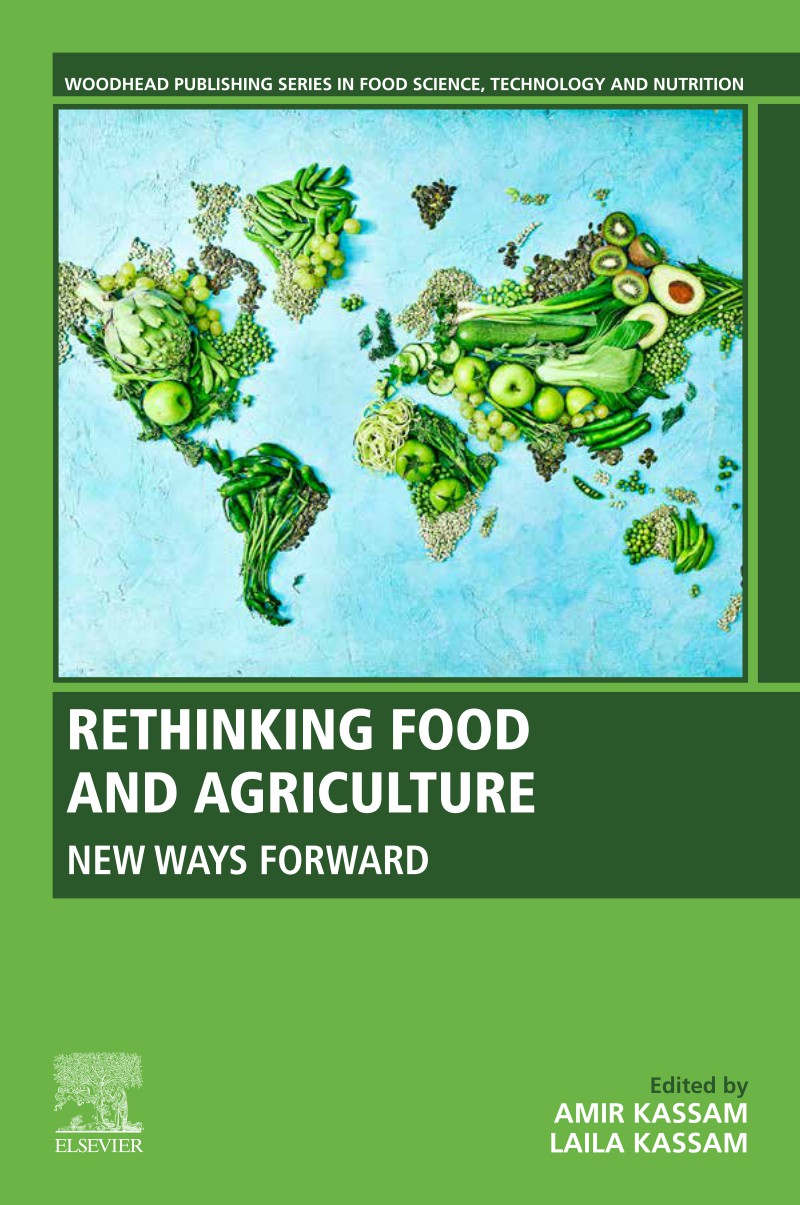The book highlights the urgent need to ‘rethink’ the food and agriculture system and highlights ‘new ways forward’, including alternative paradigms of agriculture, human nutrition and political economy that are more ethical, sustainable and just. Contributors include Robert Chambers, David Jenkins, Tony Juniper, Dr. Shireen Kassam, David Montgomery, Vandana Shiva and many others. It’s a wonderful contribution to the science and philosophy supporting the urgent need to transition to a non-violent vegan food system and restore a right relationship with ourselves, other species and nature.
The book outlines how the multiple health, climate and biodiversity crises we are facing are deeply interconnected and that these interconnections need to be better understood for meaningful system-wide transformation to be possible. In order to understand these interconnections the book explores the different stages in the food system from farm to retail and the different participants in the food system including farmers and their communities, civil society groups, social movements, development experts, scientists, and other food system actors who have been raising awareness of these issues and implementing more sustainable and just food system solutions.
The book also undertakes a deep exploration of the underlying beliefs, values, ethics and motivations, which drive the global capitalist economic system including the food system. The authors comment that, “injustice toward and suffering of humans, other animals, and nature is ultimately an issue of values and ethics. Responsible food and agriculture systems must be shaped by ethics, equity, quality of life, and informed engagement of civil society that is connected both locally and internationally.“ The concluding chapter distills some of the key themes and ways forward explored in the preceding chapters. It uses these themes to inform the concept of “inclusive responsibility” which embodies a vision of a healthy food and agriculture system.
“An inclusively responsible food and agriculture system would encourage society to focus on agroecological sustainability as an integral part of overall ecosystem sustainability based on planetary boundaries. Such a system would place importance on quality of life, pluralism, equity, and justice for all. It would emphasize the health, wellbeing, sovereignty, dignity, and rights of farmers, consumers, and all other stakeholders, as well as of nonhuman animals and the natural world. The concept of “inclusive responsibility” is ultimately based on an understanding of the interconnectedness of nature and the place and responsibility of human society within it.“
The authors have created a website, which shares extracts from each of the chapters. You can read a brief summary of the chapters here and you can also ask your library to order a copy here.
This review was originally published here as part of the Creative Commons.
